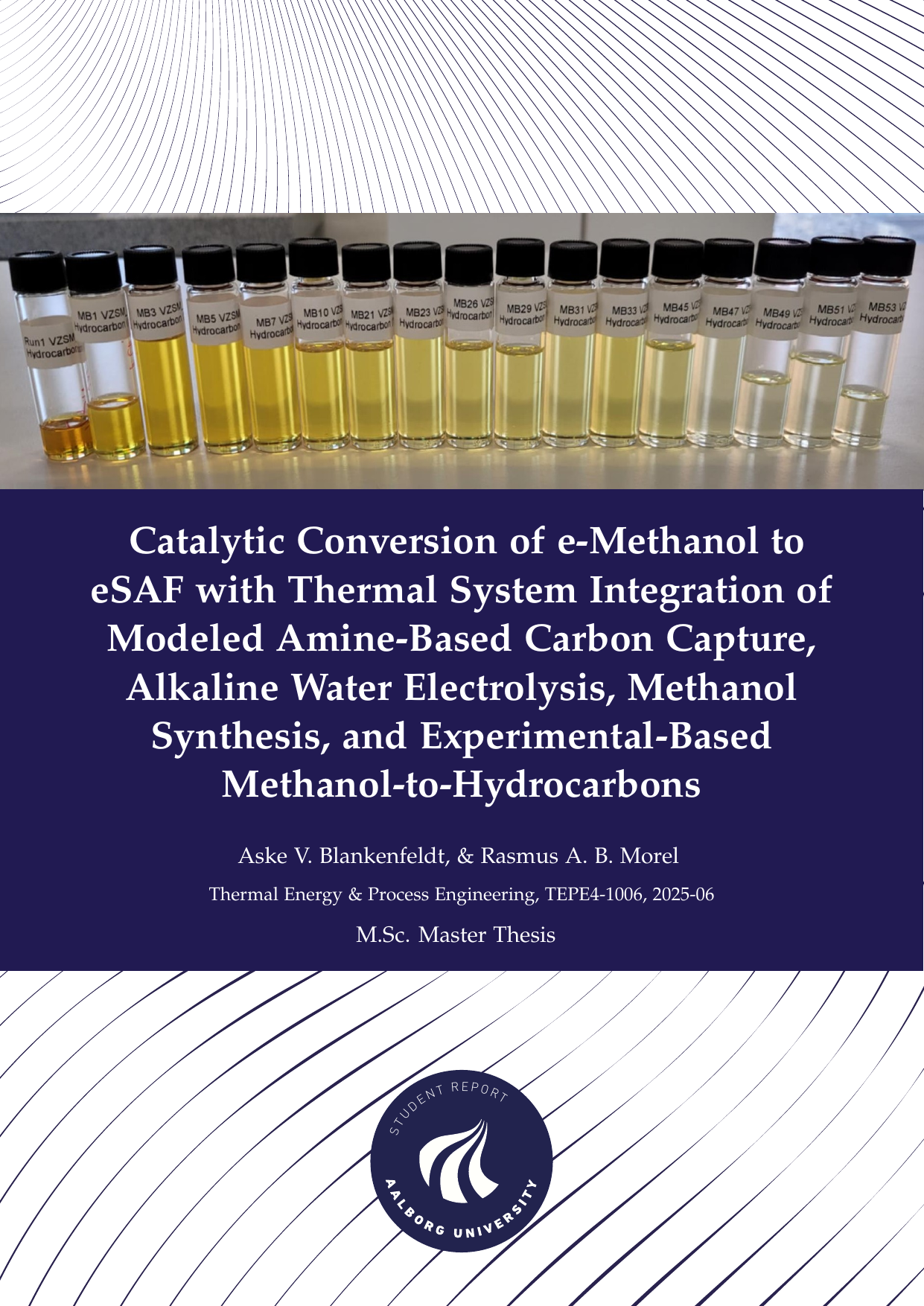
Catalytic Conversion of e-Methanol to eSAF with Thermal System Integration of Modeled Amine-Based Carbon Capture, Alkaline Water Electrolysis, Methanol Synthesis, and Experimental-Based Methanol-to-Hydrocarbons
Term
4. term
Education
Publication year
2025
Submitted on
2025-05-28
Pages
133
Abstract
This thesis explores the methanol-to-jet (MTJ) pathway as a route for sustainable aviation fuel (SAF) production. The study investigates the potential energy savings of co-locating carbon capture using monoethanolamine, H2 production via alkaline water electrolysis, and methanol synthesis from CO2 and H2, in correlation with experimental catalytic conversion of methanol-to-hydrocarbons (MTH), by heat-integration. Experimental investigations were conducted using various zeolite-based catalysts, modified with metals such as cobalt, nickel, and indium, to evaluate their performance in converting wet methanol into liquid hydrocarbons. Analytical methods like simulated distillation, gas chromatography mass-spectroscopy, and thermogravimetric analysis revealed that Co-ZSM-5(50) favored stable aliphatic production in the gasoline range. Ni-ZSM- 5(50) presented opposite results, favouring aromatic production in the kerosene range, at a significantly reduced lifetime, and increased coke formation, whereas In-ZSM-5(50) exhibited intermediate behavior. Pinch analysis showed that system efficiency for liquid fuel production increased by nearly 50% with the addition of heat integration, emphasizing its value. The model also revealed an overall carbon and hydrogen efficiency between 8.85% and 16.69%, and 2.94% and 5.83%, respectively.
Keywords
Documents
